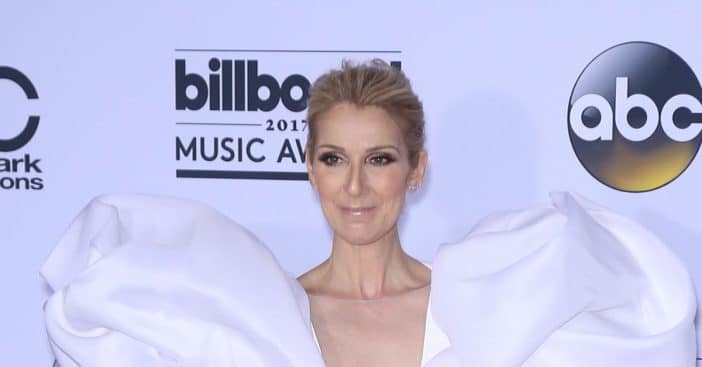
During a recent chat with PEOPLE for a June cover story, Celine Dion revealed more details about her Stiff Person Syndrome diagnosis, noting that she began observing the symptoms as far back as 2008. She recalled seeing a doctor while on her Taking Chances world tour at the time, but there was no exact telling what was wrong.
Celine considered it a treatable issue nearly two decades ago and would often self-medicate to ease the pain, to no avail. In a bid to keep performing, she turned to Valium, which she started in small safe amounts, until she grew dependent on it to function.
Celine Dion grew addicted to Valium

Over time, Celine’s body became so resistant to lower doses of Valium that she began exceeding the recommended maximum dosage of 40 mg, taking as high as 90 mg per day just to perform for fans. While discussing with Hoda Kotb on the recent Today interview for NBC, she recalled the drug before getting on stage.
RELATED: Celine Dion Tears Up As She Promises Fans Another Performance Amid SPS Battle
Like she wanted, her body responded temporarily, enabling her to work without difficulty until it became ineffective. After futile efforts to manage her pain on her own, she sought medical insight and figured out how lucky she was to have survived such dangerous amounts of Valium. By December 2022, she announced her Stiff Person Syndrome diagnosis amid tears, as she canceled her summer 2023 shows.

American Music Awards 2007
Nokia Theater
Los Angeles, CA
November 18, 2007
Despite not being able to sing for over a year due to vocal cord spasms and stiffening muscles, Celine still aspires to perform again, even if she has to “crawl” or “walk with my hands.” She is reportedly planning her last performance to be a TV special featuring her biggest hits over the last three decades.

09.11.2013
Credit: Tamara Bieber/face to face Superstar Celine Dion at the TV show WETTEN DASS. ?, Halle / Saale,09.11.2013.
Credit: Tamara Bieber / face to face
Her Prime Video documentary, I Am: Celine Dion, will be available for streaming by June 25 and promises to tell all about her rise to fame, her personal life, and her struggles with the ravaging SPS disease. Celine is working hard at getting back to serenading fans through rigorous physical, vocal, and mental exercises and feels grateful to lend her voice to increased awareness about the rare condition.
